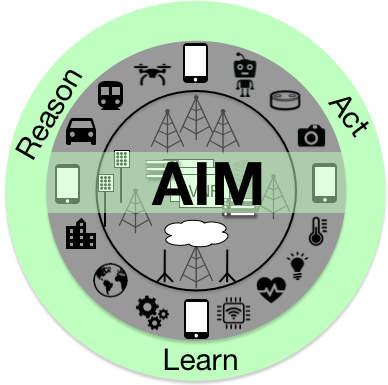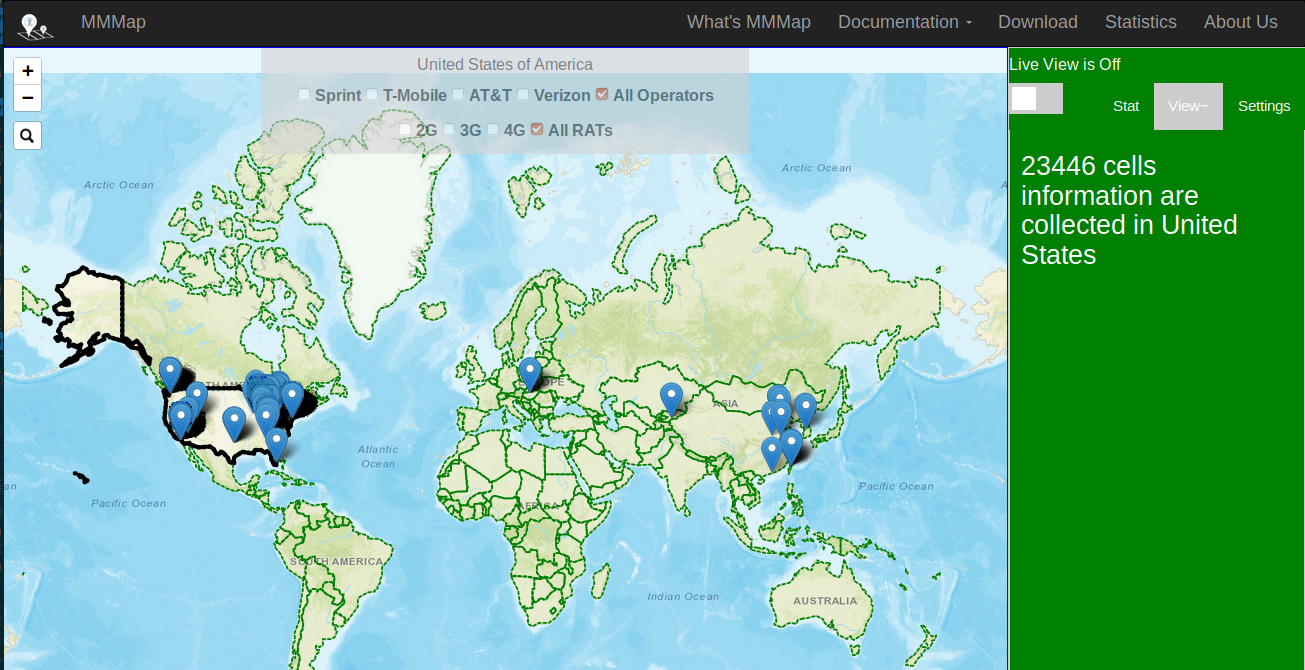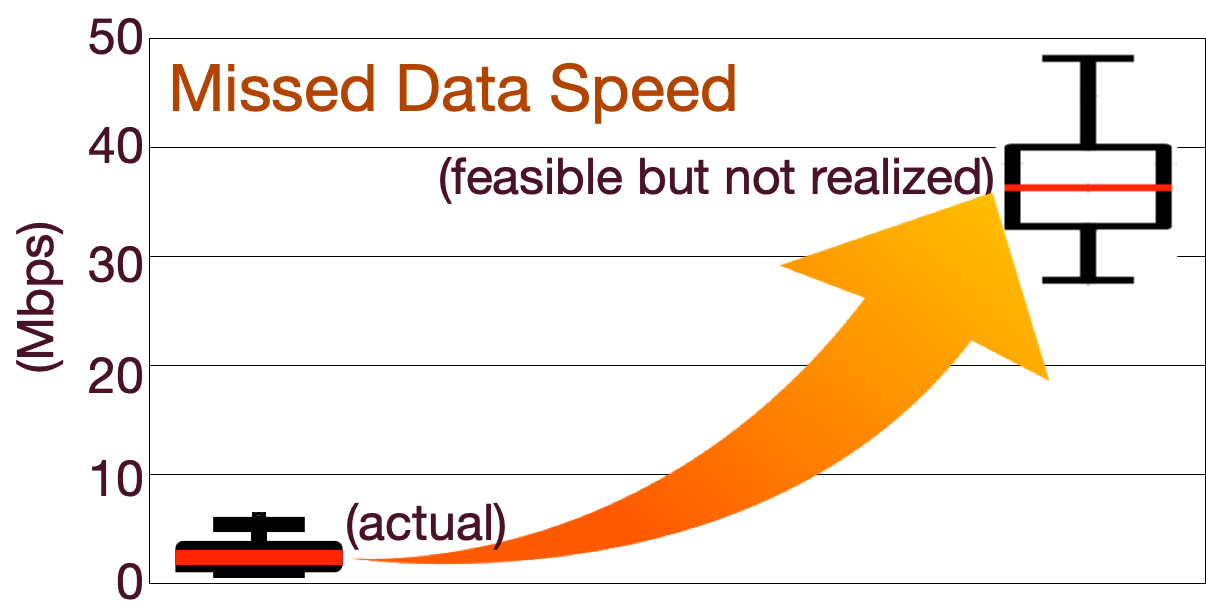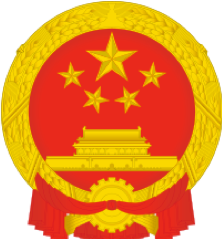CAREER: Amplifying Intelligence in Mobile Networked Systems
What's NEW
April 2020: Jingqi and Zizheng will join this project this summer/fall!
Nov 2019: The study to uncover missed data performance potential is accepted at HotMobile’20.
Aug 2019: AIM partly at Hackathn, co-located at ACM SIGCOMM 2019, Beijing, China. The used dataset and tools are from MI-LAB and MobileInsight.
April 2019: CAREER project webpage is up!
Jan 2019: MI-LAB in the classroom! It will be used a new course CS590:Network Intelligence in 5G and Beyond (Spring 2019) and bring first-hand real-world experiences to the classroom.
Nov 2018: AIM's summary talk (Phase 1) is online ( pps, PDF).
Sep-Nov 2018: I gave AIM talks (with multiple richly extended or adapted verions) at Qualcomm, MIT, UIUC, UT Austin, Rice, MSU, IUPUI, Purdue, and Notre Dame.
Oct 2018: MMMap is online!
Oct 2018: CEIVE received best demo award at MobiCom’18.
Oct 2018: CEIVE on the media! You can watch how CEIVE successfully detects Consulate Phone Scam on this video.
Aug 2018: Phone interviewed by inverse.com regarding 5G technologies and reported in their two articles: (1) and (2).
Aug 2018: AIM at Hackathn, co-located at ACM SIGCOMM 2018. Here are slides, codes and data logs, github.
Aug 2018: MI-LAB (first release) is up!
July 2018: MMLAB accepted by IMC’18.
July 2018: CEIVE and resolving multi-carrier policy conflicts accepted by MobiCom’18.
May 2018: I gave AIM talks on network data analytics at U. Chicago, AT&T Research Lab and NEC Laboratories America.
Mar. 2018: I received NSF CAREER Award. Many thanks to NSF.
Vision, Methodology and Research Thrusts
The mobile Internet revolution is ongoing, as the technology evolves from the fourth generation (4G) to 5G and beyond, with a need to incorporate a substantially higher degree of intelligence than is present in networks today. This need is driven by the observation that current 4G systems do not provide sufficient information on network behaviors. Consequently, it poses challenges to optimize performance, diagnose failures, and dis-incentivizes deployment of new applications such as virtual, augmented and mixed realitie, autonomous vehicles, massive Internet of things. This project seeks to enhance intelligence to the 4G/5G signaling subsystem, offering critical network control utilities, such as radio resource control, mobility management, service quality and security. These new designs will lead to improvements in performance and reliability to the mobile Internet infrastructure for our society.
 |
In particular, I envision the future mobile networked system to be featured by its substantially higher degree of intelligence, which offers both high performance (to the customizable services for each mobile user and thing) and built-in resiliency and security against component failures and malicious attacks. This project particularly tackles two challenges in mobile networking research:(1) lack of knowledge at the mobile clients: The mobile operating system and application programs lack information on the underlying “black-box” network operations; (2) High complexity and lack of verification in the infrastructure: The infrastructure suffers from complex designs and operations without proper verification. My mission is not to expand hard power (like many wireless advances over wider spectrum for higher bandwidth and larger capacity) but to exploit soft control and management power to fulfil network potential and eventually deliver quality services to end devices. |
This project explores a novel approach of Amplifying Intelligence in Mobile networked systems (called AIM). AIM is a multi-disciplinary solution that applies machine learning, data science, distributed systems and computing theory to mobile networking. Through its data-driven and verifiable design, AIM offers a viable, new solution suite in four concrete technical thrusts:
Protocol and function analytics for data-driven clients;
Provable and simplified control-plane signaling for data access;
Enhanced error-handling design with new investigative capability of tracing;
Mobile VR for data-plane signaling intelligence. This project complements the ongoing efforts on wireless access (5G New Radio) and architectural innovations (e.g., network slicing and Network Function Virtualization).
Broader Impacts
Enhanced intelligence is a possible technology nexus of next-phase mobile network evolution. It not only facilitates mobile operators to better serve billions of smartphone users, but also influence the ongoing 5G and beyond 5G standardization. The approach of data-driven and verifiable design offers a viable, new direction towards enhancing intelligence on any networked systems. The gained insights may help to stimulate the broader community across computer science disciplines to work together towards truly intelligent networked systems for the society. The investigator will interact closely with mobile network companies for possible technology transfer. It will recruit and train a new generation of engineers and students, including those from groups under-represented in this area.
Team
Chunyi Peng (Faculty)
Haotian Deng (PhD)
Kai Ling (PhD)
Junpeng Guo (PhD)
Jingqi Huang (PhD)
Zizheng Liu (PhD)
Jiawei Lyu (MS & Undergrat (2018 - 2019))
Bin Chen (MS)
Research Progress
 |
MI-LAB is up! We have developed MI-LAB, the first crowdsourced experimentation testbed over commerical mobile networks, extending our previous tool of MobileInsight. This seeks to spur in-phone mobile network intelligence by providing a large scale, extensible infrastructure facility by the community and for the community. It will enable and faciliate mobile network system research, including AIM's research tasks. MI-LAB is live! Updates can be found at here. |
 |
MMMap is up! We have conducted the first global-scale measurement study of handoff configurations over 30+ carriers and published our results at IMC’18. We have developed a specific measurement task MM-LAB over our MI-LAB testbed and performed measurement from 30 carriers across 15 countries and regions in a short period (days and weeks). Our IMC’18 dataset and software tools have been to the public and granted the “Artifacts Evaluated – Functional” badge and the “Artifacts Available” badge by SIGCOMM Artifacts Evaluation Committee. MMMap is live! The growing dataset is updated at here. |
 |
The MISS project aims to discover and recover the Missed 4.5G Performance in the Wild. This studies an important, yet unexplored problem in operational cellular networks: How close is the actual performance each mobile device gets in reality from what the device could have got at best? The performance gap is deemed as the missed performance because the device fails to achieve the feasible, higher performance over the same network infrastructure. The team has conducted extensive measurement to uncover, quantify, and understand such missed performance in the wild. The work to recover/realize the missed performance is ongoing. DATASET:
|
 |
We have developed CEIVE, the first callee-only defense solution against caller ID spoofing called and published our results at MobiCom’18. This CEIVE solution follows our direction of data-driven smart clients and yields the first victim-device-only defense without requiring any additional infrastructure support or substantial changes on telephony systems. CEIVE exploits an unexplored channel of call setup signaling messages. It explores the simple solution concept of initiating a callback session to the originating phone number and comparing the call states of the outgoing call session with the incoming call in order to verify whether the claimed caller ID indeed matches the actually used one. More information about CEIVE can be found at here. |
We have demonstrated CEIVE’s effectiveness in addressing a big social concern. CEIVE has achieved 100% accuracy in almost all the spoofing scenario except one special, targeted attack case, in four US carriers, one landline and two small carriers. We have also demonstrated its effectiveness in India and won the best demo Award at MobiCom’18. The CEIVE demo was up at Youtube.com, successfully combating “Consulate Phone Scam”, which has been repeatedly reported and alerted by
 ,
,
 ,
,
 ,
,
 ,
,
 ,
,
 ,
,
 ,
,
 ,
,
 .
.
 |
We have advanced our policy verification study from single-carrier handoff policy to multi-carrier roaming over Google Fi in collaboration with UCLA (MobiCom’18). We have shown policy conflicts arise between inter- and intra-carrier switching, resulting in oscillations among carriers in the worst case akin to BGP looping. We have derived the conditions under which such oscillations occur for three categories of popular policy, and validated them with Project Fi whenever possible. We have provided practical guidelines to ensure loop-freedom and evaluated them via trace-driven emulations. |
Education and Community Outreach
AIM's talk is released (pps, PDF). This is a brief summary of high-level position talk to the public without technical details. A variety of richly extended verions presented at recent visits to Qualcomm, MIT, UIUC, UT Austin, Rice, MSU, IUPUI, Purdue, and Notre Dame.
MobileInsight and MI-LAB are used in course projects (CS590) and independent studies for undergraduate and graduate students.
MobileInsight is used for Hackathon 2018 (co-located with SIGCOMM’18). Here are slides, codes and data logs, github.
MobileInsight's half-day tutorial at GlobeCom’17 introduces how to step-by-step verify mobile network operations on your phones via MobileInsight (slides:pdf),(ppsx).
Publications
Unveiling the Missed 4.5G Performance in the Wild,
Haotian Deng, Kai Ling, Junpeng Guo, Chunyi Peng, HotMobile’20, March 2020. Dataset
Mobility Support in Cellular Networks: A Measurement Study on Its Configurations and Implications,
Haotian Deng, Chunyi Peng, Ans Fida, Jiayi Meng, and Y Charlie Hu, IMC’18, Nov 2018.
CEIVE: Combating Caller ID Spoofing on 4G Mobile Phones Via Callee-Only Inference and Verification,
Haotian Deng, Weicheng Wang, and Chunyi Peng, MobiCom’18, Oct 2018 ( along with Best Demo Award ).
Resolving Policy Conflicts in Multi-Carrier Cellular Access,
Zengwen Yuan, Qianru Li, Yuanjie Li, Songwu Lu, Chunyi Peng, and George Varghese, MobiCom’18, Oct 2018
A Machine Learning Based Approach to Mobile Network Analysis
Zengwen Yuan, Yuanjie Li, Chunyi Peng, Songwu Lu, Haotian Deng, Zhaowei Tan and Taqi Raza, ICCCN’18 (Invited Paper)
Towards Automated Intelligence in 5G Systems
Haotian Deng, Qianru Li, Yuanjie Li, Songwu Lu, Chunyi Peng, Taqi Raza,Zhaowei Tan, Zengwen Yuan, Zhehui Zhang (alphabetical order) ICCCN’17 (Invited Paper)
Acknowledgement
This project is supported by NSF under grants CNS-1750953.
 |
